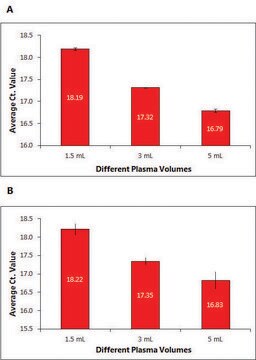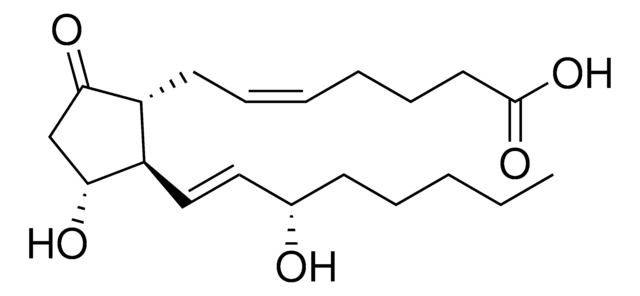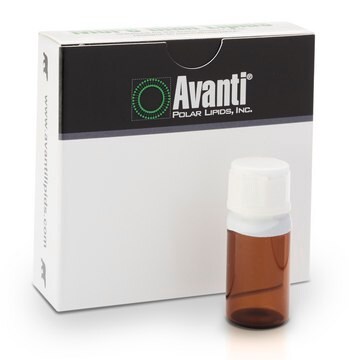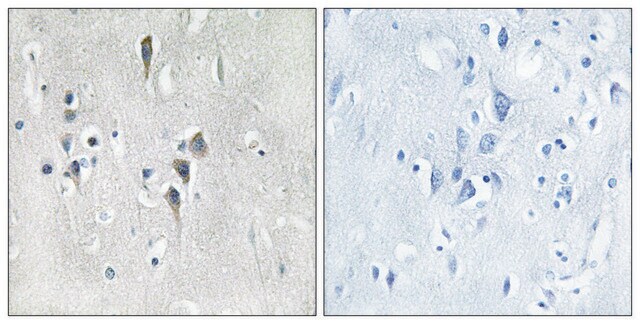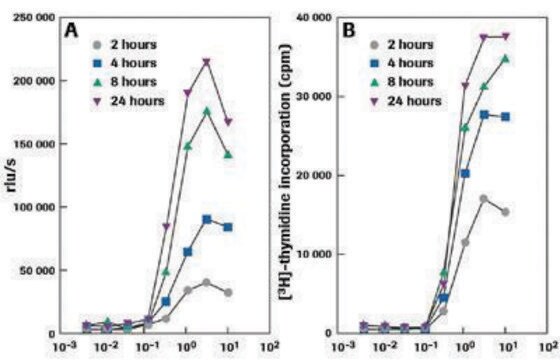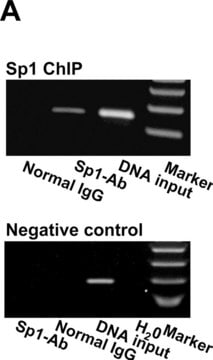推荐产品
生物源
rabbit
品質等級
抗體表格
affinity isolated antibody
抗體產品種類
primary antibodies
無性繁殖
polyclonal
純化經由
affinity chromatography
物種活性
human
技術
immunohistochemistry: suitable (paraffin)
western blot: suitable
NCBI登錄號
UniProt登錄號
運輸包裝
ambient
目標翻譯後修改
unmodified
基因資訊
human ... PCK1(5105)
一般說明
Phosphoenolpyruvate carboxykinase, cytosolic (UniProt: also known as PEPCK, PEPCK-C) is encoded by the PCK1 (also known as PEPCK1) gene (Gene ID: 5105) in human. PEPCK catalyzes the conversion of oxaloacetate (OAA) to phosphoenolpyruvate (PEP), which is a rate-limiting step in gluconeogenesis. It requires manganese as a cofactor. It is expressed in higher levels in liver of fasting subjects. Kidney and adipocytes exhibit lower expression levels. Two isozymes of PEPCK have been identified, cytosolic and mitochondrial. PEPCK consists of an N-terminal and a catalytic C-terminal domain, with the active site and metal ions located in a cleft between them. Upon binding to substrate, PEPCK undergoes a conformational change that accelerates the catalysis process. Expression of PEPCK can be controlled by cAMP, glucocorticoids, and by insulin. Its expression is induced by glucagon, catecholamines, and glucocorticoids during periods of fasting and in response to stress and is diminished following glucose-induced and by the action of insulin. PEPCK-C is absent in fetal liver but appears at birth, concomitant with the capacity for gluconeogenesis. Deficiency of PEPCK-C is a rare metabolic disorder results in fatty infiltration of liver and kidney, hypoglycemia, hepatomegaly, and failure to thrive.
特異性
This polyclonal antibody detects cytosolic phosphoenolpyruvate carboxykinase in human kidney.
免疫原
KLH-conjugated linear peptide corresponding to 15 amino acids from the C-terminal half of human phosphoenolpyyruvate carboxykinase (PEPCK).
應用
Detect Phosphoenolpyruvate carboxykinase, cytosolic [GTP] using this rabbit polyclonal Anti-PEPCK, Cat. No. ABC1691, tested in Immunohistochemistry (Paraffin) and Western Blotting.
Immunohistochemistry Analysis: A 1:1,000 dilution from a representative lot detected PEPCK in human kidney, human pancreas, human skeletal muscle, and human placental tissue.
Western Blotting Analysis: 2 µg/mL from a representative lot detected PEPCK in 10 µg of human kidney tissue.
Western Blotting Analysis: 2 µg/mL from a representative lot detected PEPCK in 10 µg of human kidney tissue.
Research Category
Apoptosis & Cancer
Apoptosis & Cancer
品質
Evaluated by Immunohistochemistry in human liver tissue
Immunohistochemistry Analysis: A 1:1,000 dilution of this antibody detected PEPCK in human liver tissue.
Immunohistochemistry Analysis: A 1:1,000 dilution of this antibody detected PEPCK in human liver tissue.
標靶描述
~65 kDa observed; 69.19 kDa calculated. Uncharacterized bands may be observed in some lysate(s).
外觀
Affinity Purified
Purified rabbit polyclonal antibody in buffer containing 0.1 M Tris-Glycine (pH 7.4), 150 mM NaCl with 0.05% sodium azide.
儲存和穩定性
Stable for 1 year at 2-8°C from date of receipt.
其他說明
Concentration: Please refer to lot specific datasheet.
免責聲明
Unless otherwise stated in our catalog or other company documentation accompanying the product(s), our products are intended for research use only and are not to be used for any other purpose, which includes but is not limited to, unauthorized commercial uses, in vitro diagnostic uses, ex vivo or in vivo therapeutic uses or any type of consumption or application to humans or animals.
未找到合适的产品?
试试我们的产品选型工具.
儲存類別代碼
12 - Non Combustible Liquids
水污染物質分類(WGK)
WGK 1
我们的科学家团队拥有各种研究领域经验,包括生命科学、材料科学、化学合成、色谱、分析及许多其他领域.
联系技术服务部门

